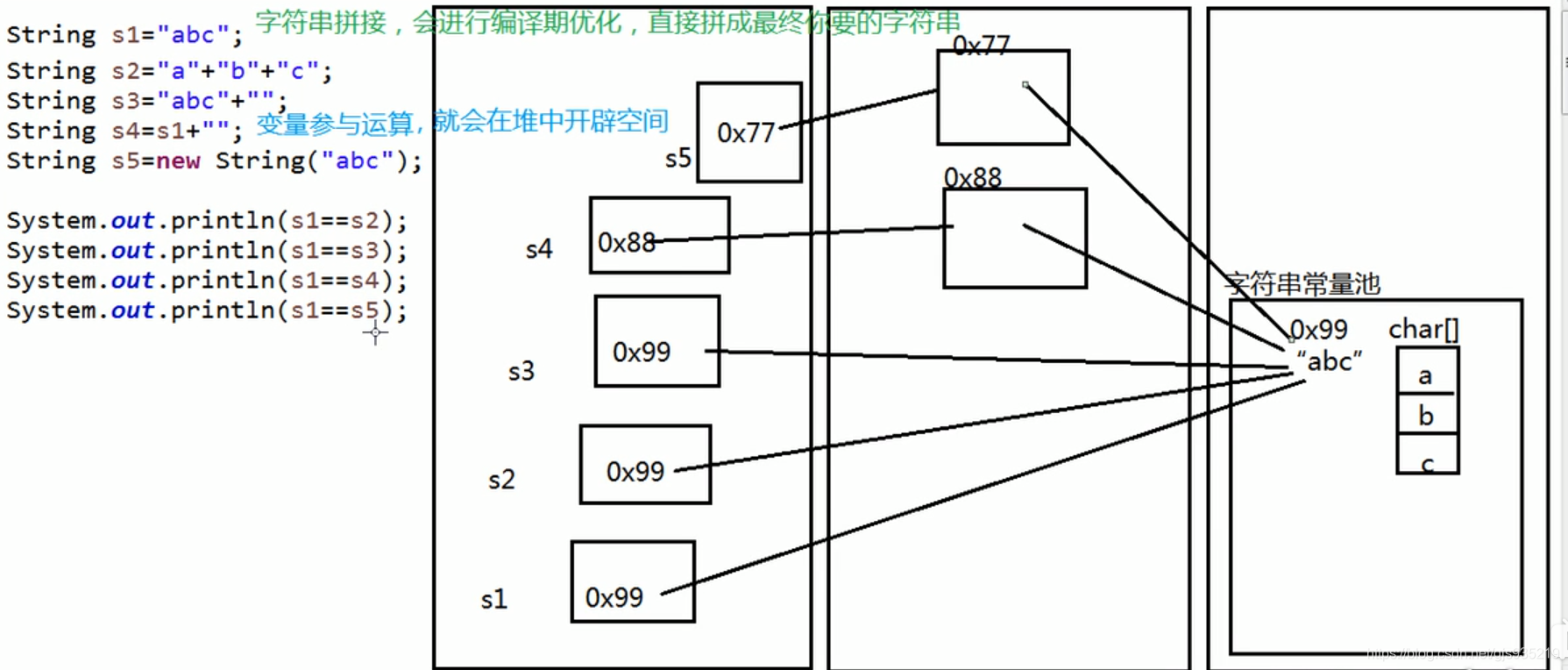String
对String来说,常见的是看程序写结果:
来3个经典:
/*
看程序写结果
*/
public static void main(String[] args)
{
String s1 = "abc";
String s2 = "a" + "b" + "c";
String s3 = "abc" + "";
String s4 = s1 + "";
String s5 = new String("abc");
System.out.println(s1 == s2); //true
System.out.println(s1 == s3); //true
System.out.println(s1 == s4); //false
System.out.println(s1 == s5); //false
}
/*
看程序写结果
*/
public static void main(String[] args)
{
String s1 = new String("hello");
String s2 = new String("hello");
System.out.println(s1 == s2); //false
System.out.println(s1.equals(s2)); //true
String s3 = new String("hello");
String s4 = "hello";
System.out.println(s3 == s4); //false
System.out.println(s3.equals(s4)); //true
String s5 = "hello";
String s6 = "hello";
System.out.println(s5 == s6); //true
System.out.println(s5.equals(s6)); //true
} /*
看程序写结果
字符串如果是变量相加,先开空间,在拼接
字符串如果是常量相加,是先加,然后在常量池中查找,如果有就直接返回,否则,就创建
*/
public static void main(String[] args)
{
String s1 = "hello";
String s2 = "world";
String s3 = "hello" + "world";
System.out.println(s3 == s1 + s2); //false
System.out.println(s3.equals(s1 + s2));//true
System.out.println(s3 == "hello" + "world"); //true
System.out.println(s3.equals("helloworld")); //true
}
StringBuilder
...有空再聊
......




















 755
755











 被折叠的 条评论
为什么被折叠?
被折叠的 条评论
为什么被折叠?








